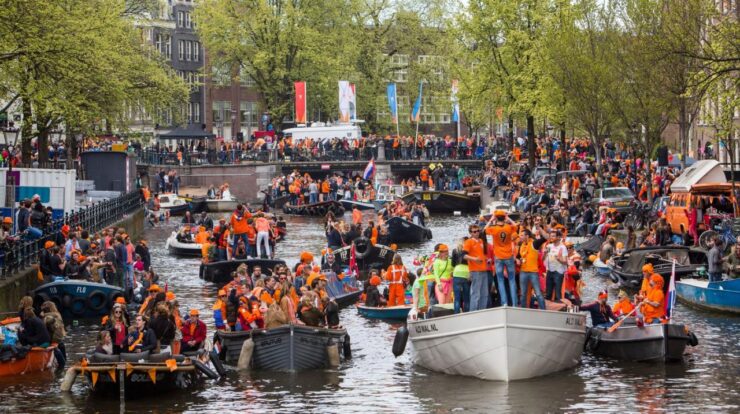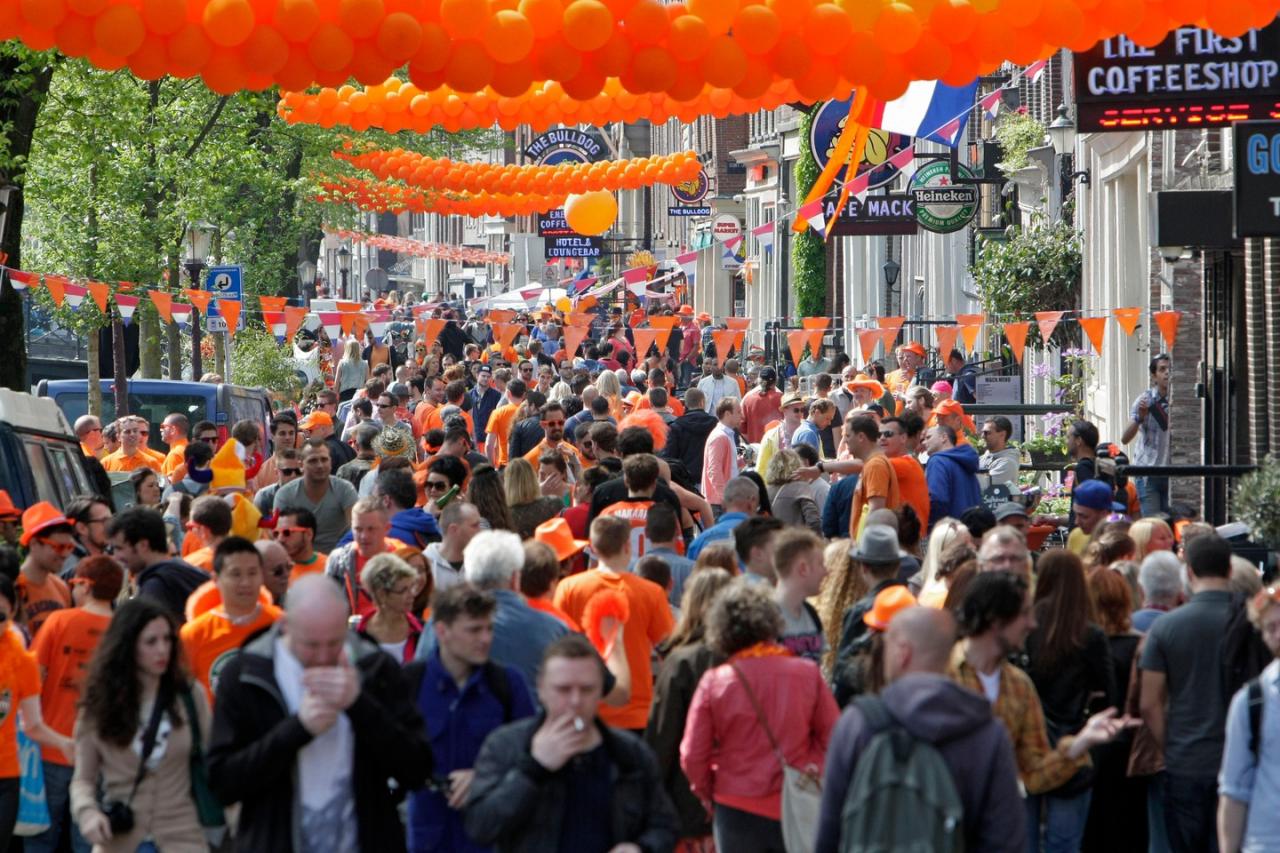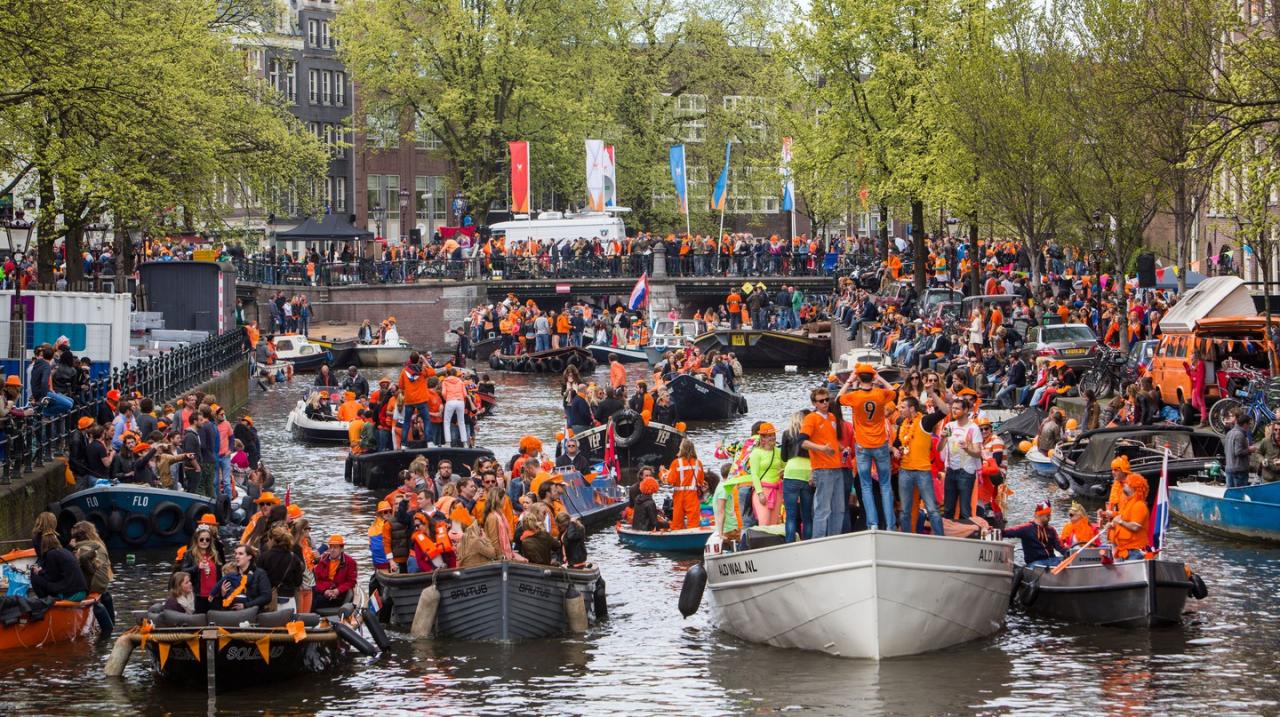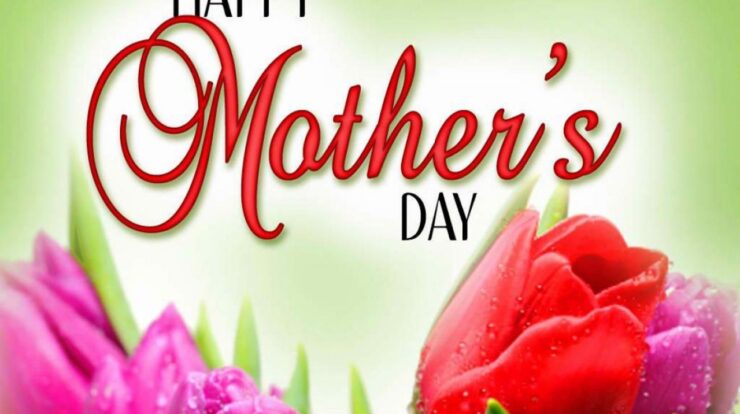
As Netherlands King’s Day takes center stage, this opening passage beckons readers into a world crafted with journalistic flair and a news-worthy tone, ensuring a reading experience that is both absorbing and distinctly original.
This beloved national holiday, steeped in tradition and cultural significance, unfolds as a vibrant tapestry of festivities, economic impact, and environmental considerations.
King’s Day in the Netherlands
King’s Day, also known as Koningsdag, is a national holiday in the Netherlands celebrated on April 27th to commemorate the birthday of the Dutch monarch. The holiday has a long and rich history, and its traditions and customs have evolved over time.
History of King’s Day in the Netherlands
The origins of King’s Day can be traced back to the 19th century when it was known as Queen’s Day. The holiday was first celebrated in 1885 to mark the birthday of Queen Wilhelmina. After Queen Wilhelmina abdicated in favor of her daughter Juliana in 1948, the holiday was renamed Queen’s Day and continued to be celebrated on April 30th, Queen Juliana’s birthday.
In 1980, Queen Juliana abdicated in favor of her daughter Beatrix, and the holiday was again renamed King’s Day to reflect the change in the monarch’s gender. In 2013, King Willem-Alexander ascended to the throne, and the holiday was moved to April 27th, his birthday.
Traditions and Customs of King’s Day: Netherlands King’s Day

King’s Day is a day of celebration throughout the Netherlands. The traditional activities associated with the holiday include flea markets, orange-themed decorations, and music performances. The color orange is significant to the Dutch royal family, and it is used to decorate homes, streets, and even clothing on King’s Day.
Many people also wear orange wigs and makeup to celebrate the holiday.
Economic Impact of King’s Day
King’s Day has a significant economic impact on the Netherlands. The holiday attracts millions of tourists to the country, and it is estimated to generate billions of euros in revenue for the Dutch economy. The holiday is particularly beneficial for the retail and hospitality sectors, as many people spend money on food, drinks, and souvenirs.
Cultural Significance of King’s Day
King’s Day is more than just a national holiday; it is also a symbol of Dutch national identity and unity. The holiday brings people together from all walks of life to celebrate their country and their monarch. It is a day of joy, laughter, and community spirit.
Final Summary

King’s Day stands as a testament to the enduring spirit of the Dutch people, a day that weaves together the threads of history, tradition, and national pride. As the future unfolds, this cherished celebration will undoubtedly continue to evolve, reflecting the ever-changing landscape of Dutch society.
Query Resolution
What is the significance of the color orange on King’s Day?
Orange is the national color of the Netherlands and is associated with the Dutch royal family, the House of Orange-Nassau.
What is the economic impact of King’s Day?
King’s Day generates significant revenue for the Dutch economy through tourism, retail sales, and hospitality.
What are some unique traditions associated with King’s Day?
King’s Day is known for its flea markets, orange-themed decorations, and music performances.






